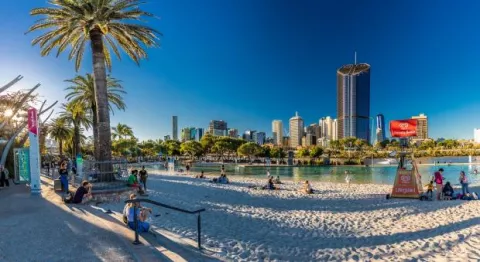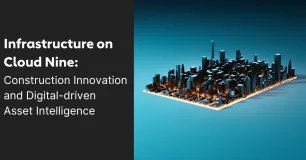
The Smart Cities Council has announced that Brisbane, Queensland Australia is one of three (3) global Readiness Challenge winners from its 2020 application process.
The other two Readiness Challenge winners are
- Orange County, Florida, USA
- Nashville, Tennessee, USA.
Brisbane City Council is a bustling city on the east coast of Australia. The Brisbane Local Government Area has a population of more than 1.2 million people and is one of the fastest-growing cities in Australia. It is known for its vibrant urban precincts, outdoor lifestyle, and welcoming nature. In fact, it is the headquarters for Smart Cities Council Australia New Zealand.
With its lifestyle and liveability brand firmly cemented, it is now turning its attention to becoming one of Australia’s leading data-inspired metropolises.
As part of its 2020 Readiness Challenge application, ultimately making it one of the winner’s, the City highlighted:
The ability to collect accurate and timely data provides the foundations for Council to make informed decisions. The significant geographic spread of the Brisbane Local Government Area means Council has thousands of kilometres of land and assets to manage, which in turn requires a sophisticated data collection plan. Council is in the process of implementing several initiatives to support the collection of operational and city data.
The overall goal of Council’s involvement in the Readiness Challenge is to accelerate the launch of targeted solutions to solidify its role as one the Australia's leading data-inspired cities.
BRINGING THE CITY ALIVE WITH DATA
The city’s goal is to explore how innovation, technology and data can help accelerate the city’s progress towards achieving broader goals of liveability, sustainability, and prosperity.
Council has an unprecedented opportunity to leverage the value of data and realise its potential in delivering cost savings, increasing organisational efficiency, improving customer services and informing policy decisions.
Understanding this importance, Brisbane City Council has established the City Analytics team to support these strategic objectives.
City Analytics sits within Council’s Economic Development team and helps Council divisions to use data to understand the current context and inform future investment or policy decisions to take a more proactive approach to city management. By having oversight into how the city is performing, Brisbane can transform the way it operates, adapting policy and operations in a timely manner to avoid unnecessary costs and service delays, and improve citizen experience.
LAYING THE FOUNDATIONS
Giving it an edge in the Readiness Challenge evaluation process was the city’s commitment to and successful deployment of foundational data collection investments to date. Some of these are summarised below.
An Internet of Things network spanning 200 square kilometres has been deployed, built in-house and supporting data collection for mosquito monitoring, water quality monitoring and soil moisture detection. Future planned projects will look to capture before and after data in local precincts to measure the impact of Council’s suburban improvement initiatives, and sensors to analyse waste trends and patterns.
In addition to this the City has deployed of 20 smart poles in inner city and suburban precincts to capture contextual information relevant to the community’s pedestrian and cyclist movements and environmental conditions (air quality/noise/temperature), while also providing additional services such as creative lighting.
To convert all the data collected into actional insights to guide policy making and investment decisions, Brisbane has built and deployed the City Life Dashboard. This platform has been created to show changes in CBD activity and movement due to COVID-19 restrictions. The data includes Council and third-party data, which is updated daily and integrated into Council reporting. Trend and pattern insights are calculated to measure daily, weekly, and monthly changes. The dashboard has allowed Council to understand the impact COVID-19 has had on the CBD and track recovery initiatives.
Growing opportunities with the Readiness Challenge
Brisbane and the Smart Cities Council are committed in 2021 to supporting additional data leadership efforts that deliver data inspired outcomes for the City’s residents and businesses.
Brisbane City Council will lead a Readiness Cohort about City Data Leadership through the second and third quarter of 2021. This will involve multiple engagement sessions. The overall goal of this ‘City Data Leadership’ Cohort is to help Brisbane and other cities accelerate the launch of targeted data solutions to create greater value for their communities. This helps achieve the Smart Cities Council's vision of 'Cities Helping Cities'.
Lord Mayor Adrian Schrinner said he was proud that Brisbane had been recognised as a global leader in smart cities.“Brisbane is a smart, connected city, and as our city grows we want to continue harnessing the data available to us, so we can make the Brisbane of tomorrow even better,” Schrinner said. “From launching our Open Data website in 2015 to deploying 20 smart poles in 2020 and using smart sensors for monitoring air quality, public habits and soil moisture, Council has been delivering ‘on the ground’ informative projects for many years. Initiatives like these continue to influence and transform the way we plan, build and innovate for the city. Brisbane is quickly developing a blueprint for other cities looking to transform and we look forward to sharing our knowledge through this program.”
If you are interested in participating in the Brisbane Leadership Cohort in 2021, please register your interest here.
About the Smart Cities Council
The Smart Cities Council, the world's largest smart cities network, envisions a world where digital technology and intelligent design are harnessed to create smart, sustainable cities with high-quality living and high-quality jobs. A leader in smart cities capacity development, the Council is comprised of partners and advisors who have generated $2.7 trillion in annual revenue and contributed to more than 11,000 smart cities projects. Council's programs include:
- A quarterly Readiness Challenge where cities submit project to qualify for the Readiness Program
- Smart Cities Activator, the only online collaborative planning platform where cities submit their projects, see other city projects and plan projects
- Smart Cities Academy, the world's premier smart city certification for Smart Cities practitioners with in-depth education
- Smart Cities Chronicles, the world's premier podcast about smart city developments -with speakers from all around the world
- Future of Place - an innovative guide to building future cities, compiled, curated and produced by smart city experts globally.
- Smart Cities Week From Crisis, Opportunity - the world’s premier smart city conference



